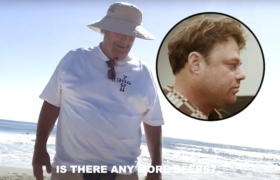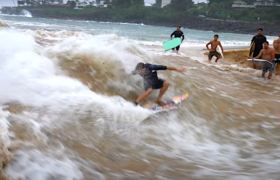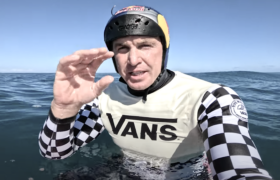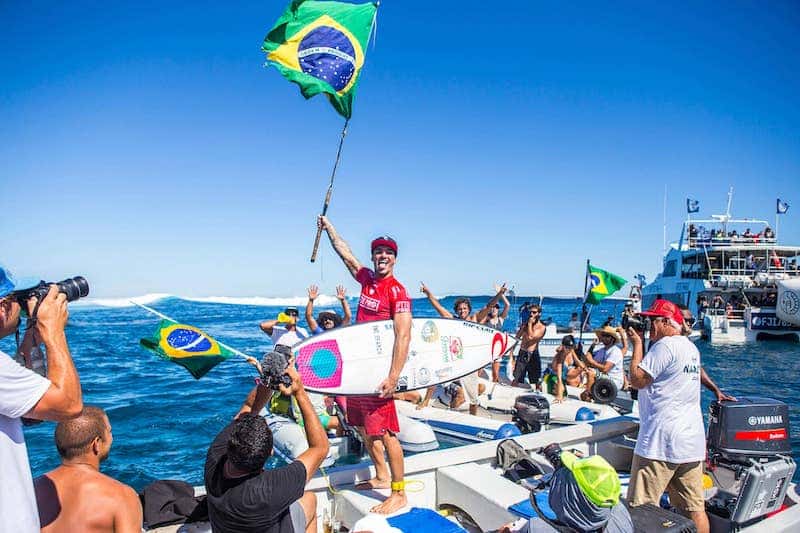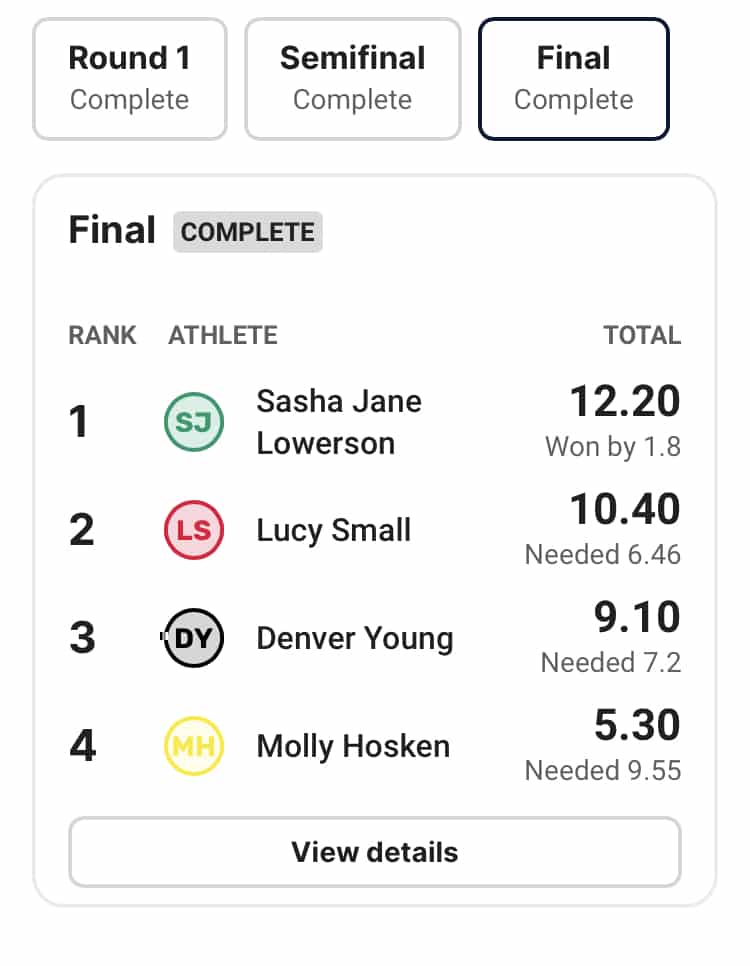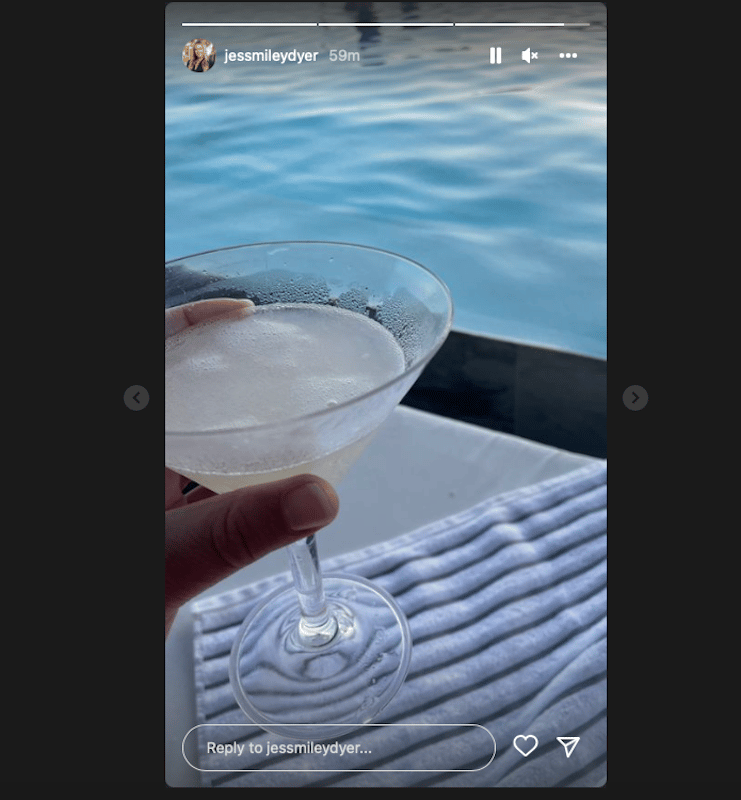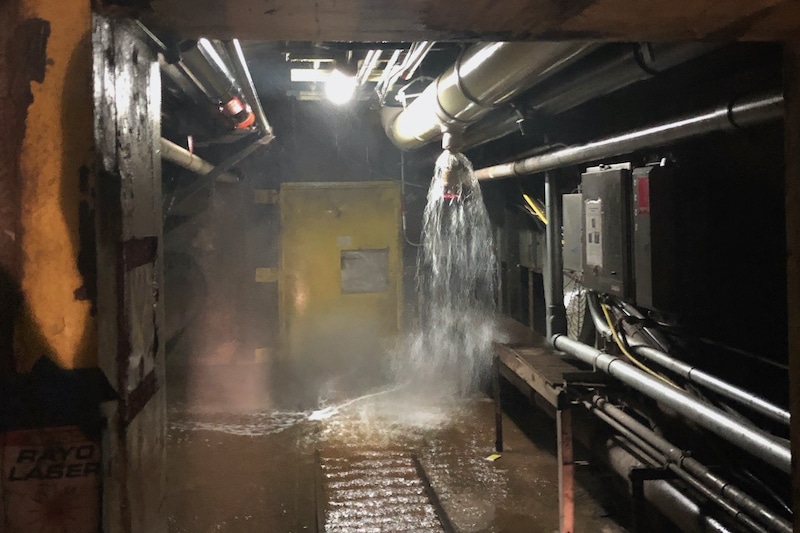Order and Progress.
Filipe Toledo is utterly destroying this 2022 edition of the World Surf League championship tour, 10,000 points ahead of second place Jack Robinson heading into J-Bay but it is no surprise. Toledo, as you know, is Brazilian and Brazilians have been our masters since Gabriel Medina’s win nearly one decade ago, now. Brazilians have hoisted the end-of-year cup in 2014, 2015, 2018, 2019, 2021 and will hoist it in 2022 and probably 2023 too ad infinitum.
It is one thing for us surfers to recognize this power, this ultimate subjugation/domination (depending on if you, dear reader, are Brazilian or not), but quite another for the mainstream to cast its busy eyes our direction and take in the changed landscape. Today, the entire globe is aware that Brazil is no. 1 as the Tempestade Brasileira gets lovingly profiled in The New York Times.
The Gray Lady begins its piece at the just-wrapped Oi Rio Pro (won by Toledo é claro) with the lithe 27-year-old being carried through the throng that so thrilled World Surf League CEO Erik Logan before turning back a decade, examining Toledo’s brunette ambition:
Toledo first announced his intention to become a professional surfer when he was 6. He dreamed not only of making the elite tour, but also of being alongside the likes of renowned world champions like the American Kelly Slater, an 11-time world champion, and the Australian Mick Fanning, a three-time champion. That Toledo — who is known for his ability to launch above the lips of waves, rotate and land seemingly with ease — had such outsize ambition was a stretch. The idea that a Brazilian could not only qualify for the tour, but actually win the tour — to beat out Californians, Australians and Hawaiians, who had dominated for decades — seemed far-fetched.
Yes, the young surfer was talented. Like his peers, he began competing in the regional contests that helped the current generation hone their skills and push one another to new heights. He also had the benefit of being coached and counseled by his father, Ricardo, a former national surf champion. And he was winning, a lot. But the distance between winning on home turf against other up-and-comers and consistently winning against the Slaters and Fannings of the world was still untraversed.
Professional Brazilian surfers just “didn’t have that much information or support,” Filipe Toledo said. “They were like, ‘What do I do now? Should I just train or should I get the money that I won in that event and spend it, doing a huge party, or invest it going on trips?’”
Stretching back further, Brazil’s history is discussed, from dictatorship to burgeoning middle class, and its professional surf pioneers like Pepe Lopez, Corlos Burle, Fabio Gouveia, Flavio and Neco Padaratz. The role Oakley played in finding and developing talent, the aforementioned dominance all leading back to Toledo who declares:
“We understand the formula now.”
That formula — the alchemy of economics, opportunity, work ethic and expectations — has been the driving force not only behind Toledo’s professional success so far, but of what he believes is still possible. Considering the rest of his season, there are just two goals he has in mind.
“Enjoy the process,” he said. “And win the world title.”
It is a fine read and good for us so to do and also learn Portuguese.
Dessa forma, podemos fazer parte do futuro brilhante e maravilhoso do surf, em vez de pedaços maçantes jogados ao lado da ordem e do progresso.
